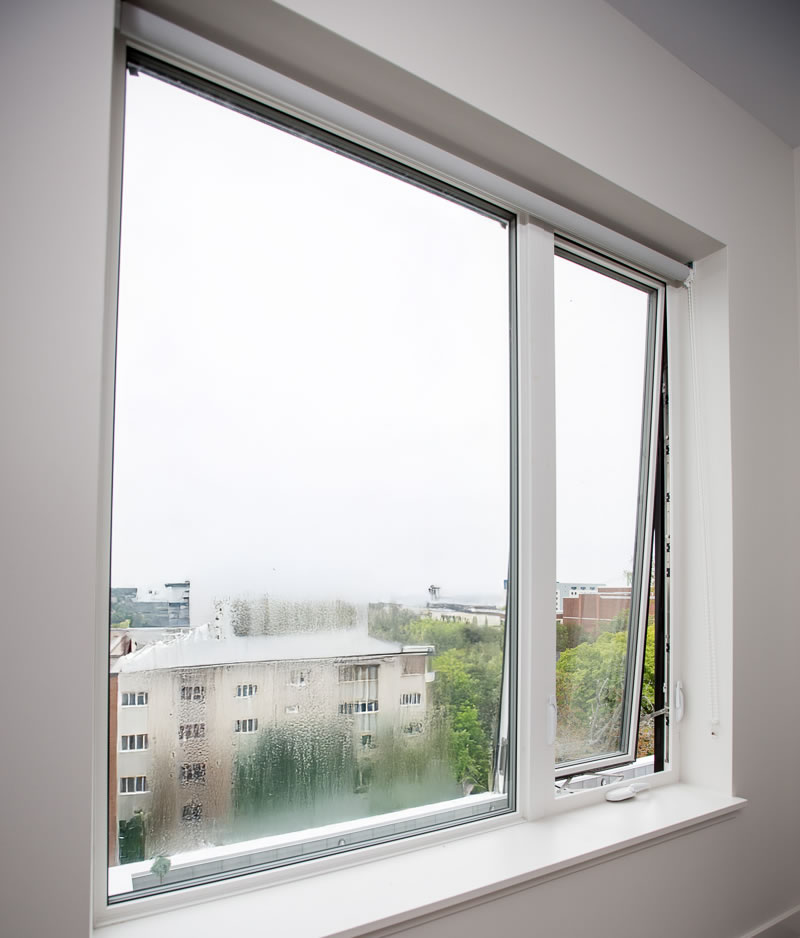Foggy Windows and Sealed Unit Replacement
Thermopane windows, or double-glazed windows, consist of two panes of glass separated by a spacer and sealed around the edges.


Foggy Windows and Sealed Unit Replacement
The space between the panes is typically filled with an inert gas, such as argon, which enhances the window’s insulative properties. Over time, these windows can experience “fogging” between the panes, and this fogging is especially concerning when the warranty period is over, as homeowners may need to bear the repair or replacement cost.
Learn more about how to handle window condensation from our Foggy Windows Article.


Here’s why thermopane windows get foggy:
- Seal Failure: The primary reason for fogging in double-glazed windows is a seal failure. The perimeter seal keeps moisture out of the space between the panes. Over time, due to various factors like temperature fluctuations, UV exposure, or mechanical stresses, the seal can degrade or break. Once the seal is compromised, moisture from the air can enter the space between the panes.
- Absorbent Desiccant Saturation: Within the spacer bar of the window, there’s a desiccant material designed to absorb any initial moisture present during the window’s fabrication or any that may enter the IGU during its lifespan. However, if a prolonged seal fails, this desiccant can become saturated and no longer effectively absorb moisture, leading to visible fogging.
- Temperature and Humidity: Temperature differences between the inside and outside of a home, coupled with high exterior or interior humidity, can expedite the process of condensation inside a compromised window unit.
- Age of the Window: As windows age, the sealant materials can naturally degrade, making older windows more susceptible to seal failure. This is often why fogging becomes more common after the warranty period, as many warranties are designed to cover the average expected lifespan of the primary seal.
- Inferior Quality or Faulty Installation: Windows of lower quality or those that were improperly installed might experience seal failures earlier in their lifespan.
- Mechanical Stresses: Physical impacts, significant pressure differences, or even house settling can place stress on the window, potentially leading to seal failure.
- Solar Pumping: Over the course of a day, the space between the panes can heat up (due to sunlight) and cool down. This leads to a “pumping” action, where the gas inside expands and contracts. Over time, this can stress the seals and may lead to tiny amounts of air and moisture being drawn into the space between the panes, especially if there’s a minor seal flaw.
Once fogging occurs inside a thermopane window or sealed unit, it’s a sign that the seal has failed and the window has lost its insulative properties. While the window will still function as a barrier, its thermal performance will be reduced. In such cases, homeowners often have to decide between replacing the affected glass unit (while keeping the existing frame) or replacing the entire window. Talk to Centennial Glass today about replacing or repairing your older windows. We can extend the life span of your windows and save you money by replacing the sealed units.



